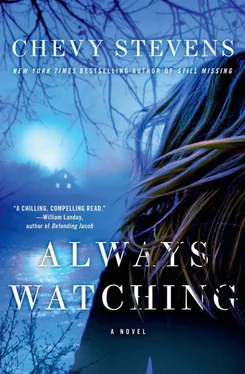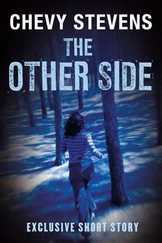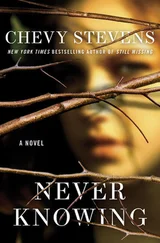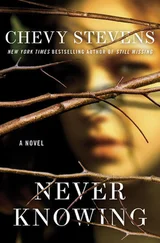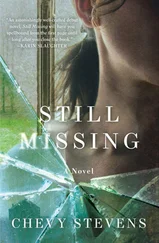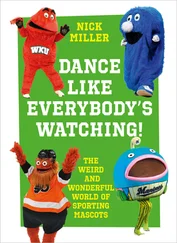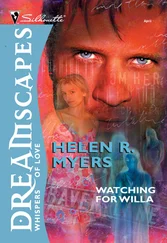Since then, I’ve tried to keep tabs on her through parents of her friends. She came home one Christmas and spent most of it on her cell phone, while I tried to re-create the magic of her childhood. She’d promised to come home the next Christmas, even phoned a few days early to confirm, but then never showed up. She hadn’t been home since. I’ve kept every present from every Christmas and every missed birthday. But I couldn’t stop missing my daughter.
There wasn’t a night that went by when I didn’t wonder where she was, if she had enough to eat, if she was cold. I tried not to think about how she might be damaging her body, the things she might be doing to get more drugs. Mostly I struggled with guilt. Was it because I was so consumed with my own grief? I should have talked to her more, should’ve found out what was going on earlier.
And underneath that was the shame at my failure as a doctor. When she first started doing drugs, I thought I could help her. I was a psychiatrist, of course I could help my own daughter, but then, when every attempt failed, and she ran away, I thought, What kind of doctor am I? How can I hold myself out as a professional when my drug-addicted daughter is living on the streets?
Sometimes I wondered if the problems started even before Paul became sick. He was a veterinarian, and after we had Lisa I stayed home for a year, then worked part-time at the clinic. When she was five, I decided to become a psychiatrist, a long-held dream that Paul supported, so I went to medical school in Vancouver. Lisa lived with me and also started school. Paul would visit on the weekends. We moved back to the island when Lisa was ten, and I completed my residency at St. Adrian’s. I did my best during those years to balance everything, to be a good wife and mother, but now I’d remember all the times I’d been short with Lisa when I was rushing to class, or told her to be quiet when I was studying—and her disappointed face.
The last time I saw Lisa was eight months ago. After I was attacked outside my office, one of my friends, Connie, had finally tracked her down through some of Lisa’s friends. She’d visited me in the hospital. I’d been thrilled, had wanted to hold and hug her so hard that she could never run away again, but she was edgy, dark circles under her once-gorgeous blue eyes, her tall frame, so like her father’s, painfully thin. Reminding me of Paul before he died. She could barely look at me and only stayed a few minutes, saying she had to meet a friend. I lost track of her after that, her friends changing as fast as her location.
After I moved down to Victoria and discovered that the trail stopped cold for Lisa, I visited the Victoria New Hope Society—they run three shelters for the homeless—with a photo of her, but they wouldn’t give me any information. I wondered if I’d know my own daughter if I saw her. I didn’t even know what color her hair was now. The first time she’d bleached it, I’d tried to understand that she was finding her own way, tried to applaud her individuality, but I’d missed the little girl who wanted to grow up to be just like her mother, who used to ask me to braid my hair like hers so we looked the same. We were never the same, though.
She was quiet, and I was communicative, always trying to get to the bottom of things, always wanting to know why people felt the way they did. I wondered if that was one of the many ways I’d gone wrong. Living in a family where nothing was discussed, I’d wanted openness with Lisa, encouraged her to talk about her feelings, to share her thoughts, but she’d always kept her own counsel. That had frustrated me when she was younger, as much as it scared me. It wasn’t until after she moved out I realized that I’d wanted her to share her feelings so I could guide them and control her, so I could keep her safe.
Once in a while on my evening drives, I’d stop and show her photo to some street kids, wondering if Lisa would hear that I was looking for her, worrying that my attempts to find her might just push her away again.
I shouldn’t have worried. It was always the same thing: just another group of kids, with their hoodies, baggy pants, and skateboards, not one of whom had ever laid eyes on my daughter.
* * *
That night, after my fruitless search for Lisa, I pulled in my driveway and as I walked around the corner of my house to my back door, I noticed the black cat stalking a bird. She spotted me, and with a clatter of garbage can lids, leaped on top of the fence. The cat glared down, her skinny tail flicking back and forth—not afraid, angry. I made kissing sounds, but she turned her back and began to lick her paws. I put some tuna on a plate and walked back out. She eyed me from her perch on the fence but wouldn’t come closer, no matter how many enticing sounds I made. I put the dish up on the railing of my deck. In the morning, on my way to the hospital, I noticed happily that the plate of tuna I’d put out the night before had been licked clean. Tonight, when I returned home, I’d put out a blanket-lined box, so she’d have somewhere safe to sleep. My mind flowed back to Lisa, and I wondered where she was staying and if she was warm at night. I wondered if she ever thought of me.
* * *
The nurses told me that Heather wasn’t sleeping as much and had joined another group session the day before, then spent the rest of the day watching TV with some patients—all good signs. During my interview, it was clear she was still struggling with self-esteem issues and guilt about leaving the commune, but I was able to get her to focus on staying in the present as we worked on her care plan.
“What can you do today that might help you?”
She said, “I can join group or take a walk around the ward.”
“Those are great ideas!” We talked about a few more things she could try, then I asked if she was still having thoughts of hurting herself.
“Sometimes, but not as much.” She looked around. “It’s different in here. I’m not as lonely. And the nurses, like Michelle, they’re all really nice. I feel…” She shrugged. “Safer, I guess. Like I’m not weird or bad or something.”
“You’re not. And I’m glad that you’re starting to see that.”
“It’s nice, having someone to listen to you.” She smiled. “I used to listen to Emily when she was upset. We’d go to the barn—she loved horses.”
“Sounds like you were a great support for her.”
“I felt like her big sister.” She paused, thinking. “I showed her how to ride bareback, and we’d go down to the river every day, just to talk.”
As Heather began to describe the trail they took down to the water, my mind filled with images and sounds, the forest cool in the summer, the creak of a saddle, the earthy scent of the woods and horses, and I was pulled back in time.
Willow and I are riding together, bareback through the woods. We pause to let the horses drink from a pool in the river. She’s standing near me, her horse nuzzling her shoulder. She says, “I watch Aaron with you sometimes….”
My heart starts to thud in my ears, panic digging into my blood.
She’s still talking. “I saw you coming back from the river with him. You looked upset. If there’s anything you ever want to talk about…”
Now my heart’s hitting so hard against my chest, I can barely breathe. Shame, thick and hot, presses down on me.
My voice angry, I say, “There’s nothing to talk about.”
“If he hurt you—”
But I’m already turning, climbing up a log to jump on the back of the horse. “Let’s go.”
* * *
Heather’s voice pulled me back into the present as she said, “That’s one of the reasons I thought about going back, so I could help her. I hope she’s okay.”
Читать дальше
